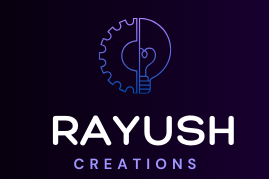
Introduction
Customer relationships are the backbone of any business. In today’s fast-paced digital world, managing customer interactions efficiently is crucial for growth. This is where a Customer Relationship Management (CRM) system becomes essential. Whether you run a small business or a large enterprise, implementing a CRM can streamline operations, boost sales, and improve customer satisfaction.
1. What is a CRM System?
A CRM system is software that helps businesses manage customer interactions, track sales, and automate workflows. It centralizes customer data, making it easy to access and analyze for better decision-making.
Key Features of a CRM:
✔ Customer Database – Stores customer details, purchase history, and communication records. ✔ Sales Pipeline Management – Tracks leads, deals, and sales progress. ✔ Task Automation – Automates follow-ups, emails, and reminders. ✔ Analytics & Reporting – Provides insights into customer behavior and business performance.
2. Benefits of Using a CRM System
A CRM system is more than just a tool – it’s a business growth accelerator. Here’s how it benefits businesses:
✔ Improved Customer Relationships
- A CRM records every interaction with customers, ensuring personalized service.
- Businesses can respond quickly to inquiries, leading to higher customer satisfaction.
✔ Increased Sales & Conversions
- Helps track leads and automate follow-ups.
- Identifies potential customers and sales trends using data insights.
✔ Enhanced Team Collaboration
- Allows multiple team members to access and update customer records.
- Ensures seamless communication between sales, marketing, and support teams.
✔ Better Data Management & Security
- Stores customer information securely in a centralized location.
- Reduces errors and ensures compliance with data protection regulations.
✔ Time-Saving & Workflow Automation
- Eliminates manual data entry and repetitive tasks.
- Automates email campaigns, appointment scheduling, and invoicing.
3. How Different Businesses Benefit from CRM
CRM systems are not just for large enterprises—small and medium-sized businesses can also leverage them for success.
✔ Small Businesses
- Organizes contacts, customer interactions, and follow-ups in one place.
- Automates marketing and customer engagement for better outreach.
✔ E-commerce & Retail
- Tracks customer purchase history and behavior.
- Provides personalized recommendations and promotions.
✔ Service-Based Businesses
- Manages appointments, client communications, and feedback.
- Enhances customer loyalty through relationship-building.
✔ Financial & Money Transfer Services
- Helps in maintaining customer transaction history.
- Ensures compliance with financial regulations and fraud prevention.
4. Choosing the Right CRM for Your Business
Selecting the right CRM depends on your business size, industry, and specific needs. Here are some key factors to consider:
✔ Ease of Use – Is the CRM user-friendly and easy to integrate? ✔ Customization – Can you tailor the CRM to fit your business processes? ✔ Scalability – Will the CRM grow with your business needs? ✔ Automation Capabilities – Does it support email automation, lead tracking, and task management? ✔ Cost & ROI – Is the pricing reasonable based on the features you need?
🚀 Popular CRM Options:
- HubSpot CRM (Best for startups and small businesses)
- Salesforce (Best for large enterprises)
- Zoho CRM (Affordable and feature-rich for SMEs)
- Rayush Creations Custom CRM (Tailored solutions for money transfer & business automation)
5. Conclusion
A CRM system is a game-changer for businesses looking to improve efficiency, enhance customer relationships, and drive sales. Whether you’re a startup or a large corporation, investing in a reliable CRM will give you a competitive edge in today’s digital market.
Looking for a Custom CRM Solution?
At Rayush Creations, we build tailored CRM software to fit your business needs. Contact us today for a free consultation and take your customer management to the next level!
